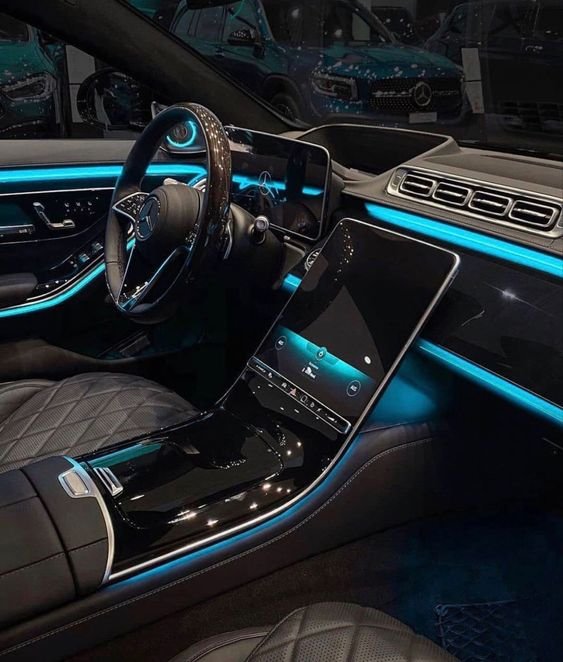
Electric vehicles (EVs) represent a paradigm shift in the automotive industry, promising a sustainable, efficient, and technologically advanced future for transportation. With growing environmental concerns, advancements in battery technology, and supportive governmental policies, EVs are rapidly gaining traction worldwide.
This comprehensive article delves into the various facets of EVs, exploring their history, technological advancements, market trends, environmental impact, and future prospects.
Introduction to Electric Vehicles
Electric vehicles (EVs) are automobiles powered entirely or partially by electricity. Unlike traditional internal combustion engine (ICE) vehicles, which rely on gasoline or diesel, EVs use electric motors and batteries to operate. The concept of electric transportation is not new; it dates back to the 19th century.
However, it is only in recent decades that EVs have gained significant attention due to advancements in technology and increasing environmental awareness.
Historical Background
The history of electric vehicles is both fascinating and integral to understanding their current resurgence. In the late 19th and early 20th centuries, electric cars were quite popular, especially in urban areas, because of their quiet operation and ease of use compared to steam and gasoline vehicles. Innovators like Thomas Edison and Nikola Tesla contributed to early electric car technology.
However, the discovery of abundant oil reserves and the advent of mass production techniques by Henry Ford made gasoline-powered cars more affordable and accessible, leading to a decline in electric car usage. The oil crises of the 1970s and growing environmental concerns in the late 20th century rekindled interest in electric vehicles, setting the stage for the modern EV revolution.
Technological Advancements
Battery Technology
The heart of an electric vehicle is its battery. Early EVs were limited by the capacity and efficiency of their batteries. Today, advancements in lithium-ion battery technology have dramatically improved the range, charging speed, and overall performance of EVs. Researchers are also exploring next-generation battery technologies, such as solid-state batteries, which promise even greater energy density and safety.
Electric Motors
Modern electric motors are highly efficient and offer excellent torque, providing quick acceleration and smooth driving experiences. Unlike internal combustion engines, electric motors have fewer moving parts, which reduces maintenance costs and increases reliability.
Charging Infrastructure
One of the critical factors for the widespread adoption of EVs is the availability of a robust charging infrastructure. Public and private investments are driving the expansion of charging networks. Fast-charging stations can now replenish an EV’s battery to 80% in as little as 30 minutes, addressing one of the main concerns of potential EV buyers – range anxiety.
Market Trends
Global Adoption
The global EV market has seen exponential growth over the past decade. Countries like Norway, China, and the Netherlands are leading the charge, with substantial market shares of electric vehicles. Government incentives, such as tax rebates, subsidies, and stricter emissions regulations, are major drivers behind this growth.
Major Players
Several automakers have embraced the shift to electric mobility. Companies like Tesla, Nissan, and Chevrolet were early adopters, while traditional giants such as Volkswagen, Ford, and General Motors are now investing heavily in EV technology. Additionally, numerous startups, particularly in China, are emerging as significant players in the EV space.
Market Segmentation
The EV market can be segmented into battery electric vehicles (BEVs), plug-in hybrid electric vehicles (PHEVs), and hybrid electric vehicles (HEVs). BEVs are fully electric, relying solely on batteries for power. PHEVs combine an electric motor with an internal combustion engine, allowing for greater range. HEVs, like the Toyota Prius, primarily use an internal combustion engine but can switch to electric mode for short distances.
Environmental Impact
Emission Reduction
One of the primary motivations for the transition to electric vehicles is the reduction of greenhouse gas emissions. EVs produce zero tailpipe emissions, significantly decreasing pollutants that contribute to air quality issues and global warming. Even when considering the emissions from electricity generation, EVs are generally cleaner than their gasoline counterparts.
Lifecycle Analysis
A comprehensive environmental impact assessment of EVs includes their entire lifecycle, from production to disposal. While the manufacturing of EVs, particularly batteries, is energy-intensive, studies indicate that the overall environmental benefits outweigh the initial carbon footprint. Recycling and second-life applications for batteries are also areas of active research, aiming to further mitigate environmental impacts.
Economic Considerations
Cost of Ownership
The total cost of ownership for EVs is becoming increasingly competitive with traditional vehicles. Although the initial purchase price of EVs can be higher, lower operating and maintenance costs, coupled with government incentives, make them economically attractive. The cost of electricity is generally lower than gasoline, and EVs require less maintenance due to fewer moving parts.
Job Creation and Economic Growth
The transition to electric mobility is also driving job creation and economic growth in new sectors. Battery manufacturing, charging infrastructure development, and renewable energy integration are creating opportunities in various industries. Governments and private companies are investing billions of dollars in research and development, further stimulating economic activity.
Challenges and Solutions
Range Anxiety
Range anxiety, the fear that an EV will run out of power before reaching a charging station, remains a significant barrier to adoption. However, continuous improvements in battery technology and the expansion of charging networks are alleviating these concerns. The latest EV models offer ranges comparable to gasoline vehicles, and fast-charging infrastructure is becoming more widespread.
Charging Infrastructure
Developing a comprehensive and accessible charging infrastructure is crucial for the mass adoption of EVs. Public-private partnerships, government initiatives, and innovations in charging technology are essential to address this challenge. Wireless charging and ultra-fast charging stations are among the emerging solutions.
Battery Disposal and Recycling
The disposal and recycling of EV batteries present environmental and logistical challenges. Developing efficient recycling processes and finding second-life applications for used batteries are critical areas of research. Companies are exploring ways to repurpose EV batteries for energy storage systems, thus extending their useful life and reducing environmental impact.
Future Prospects
Autonomous Electric Vehicles
The integration of autonomous driving technology with electric vehicles is poised to revolutionize transportation. Autonomous EVs promise to enhance safety, reduce traffic congestion, and provide new mobility solutions. Companies like Waymo, Tesla, and traditional automakers are investing heavily in self-driving technology.
Renewable Energy Integration
The synergy between EVs and renewable energy sources, such as solar and wind, is another exciting development. EVs can act as mobile energy storage units, supporting grid stability and enhancing the use of renewable energy. Vehicle-to-grid (V2G) technology enables EVs to feed electricity back into the grid, contributing to energy sustainability.
Policy and Regulation
Government policies and regulations will continue to play a vital role in shaping the future of electric mobility. Stricter emissions standards, incentives for EV adoption, and investments in infrastructure are essential for accelerating the transition. International cooperation and harmonized regulations can further facilitate the global adoption of EVs.
Electric vehicles represent the future of transportation, offering a sustainable, efficient, and technologically advanced alternative to traditional internal combustion engine vehicles. With significant advancements in battery technology, expanding charging infrastructure, and supportive governmental policies, the momentum behind EVs is unstoppable.
The transition to electric mobility is not without challenges, including range anxiety, infrastructure development, and battery disposal. However, ongoing research, innovation, and investment are addressing these issues, paving the way for a cleaner and more sustainable transportation future.
As we move forward, the integration of autonomous driving technology, renewable energy sources, and supportive policies will further enhance the adoption and impact of electric vehicles. The future of transportation is electric, and it holds the promise of a cleaner, more efficient, and sustainable world.
ALSO READ: Tesla’s Market Share in US EV Market Falls Below 50%





